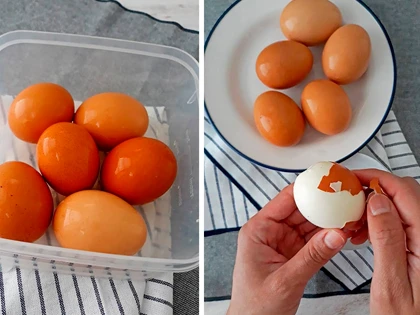Seven Ways To Stay Focused When Studying At Home
Setting a study schedule facilitates an easier switch into study mode. Pre-study routines, such as organizing your workspace, closing the door, putting on headphones, and making a to-do list, could be part of it. It's essential to divide your study time into manageable segments with designated breaks and goals. You will be able to concentrate and stay on task longer thanks to this.
1. Establish a study area.

2. Set a timer
 “What gets measured gets done,” as management theorist Peter Drucker noted. You'll learn to be more intentional about getting to work by keeping track of how much time you spend studying each day. It is essential to study during the period of the day when you feel most productive. Using your innate rhythms will help you be more attentive and improve your memory of information. Try the Pomodoro technique if you learn best in short bursts; Choose a task and focus on it non-stop until the timer goes off. After that, take a break for three to five minutes.
“What gets measured gets done,” as management theorist Peter Drucker noted. You'll learn to be more intentional about getting to work by keeping track of how much time you spend studying each day. It is essential to study during the period of the day when you feel most productive. Using your innate rhythms will help you be more attentive and improve your memory of information. Try the Pomodoro technique if you learn best in short bursts; Choose a task and focus on it non-stop until the timer goes off. After that, take a break for three to five minutes.
3. Disable distracting apps and websites.
 Although technology is intended to increase productivity, it can sometimes be a major distraction. You can stay focused on the most crucial tasks during study time by using programs that block distracting websites and apps. Sports teammates who need to practice or play a game or family members who want to socialize can also be sources of distraction. It is beneficial to let them know that you need a quiet place where you can concentrate. Maintaining a dedicated study space and changing topics every two hours are also smart ideas. As a result, your energy levels and attention span will stay fresh.
Although technology is intended to increase productivity, it can sometimes be a major distraction. You can stay focused on the most crucial tasks during study time by using programs that block distracting websites and apps. Sports teammates who need to practice or play a game or family members who want to socialize can also be sources of distraction. It is beneficial to let them know that you need a quiet place where you can concentrate. Maintaining a dedicated study space and changing topics every two hours are also smart ideas. As a result, your energy levels and attention span will stay fresh.
4. Enjoy some classic tunes.
 According to studies, listening to classical music can improve concentration. It's a great way to get rid of distractions and create a productive study space. It is also a fantastic method to inspire you to study. In one study, people who listened to Mozart while studying performed better on a test than those who didn't. Try to limit your studio music selection to soft instrumental tracks without vocals. Anything that is too tense or happy should be avoided as it can disrupt the thought process. Another option is to try to relax with relaxing, ambient or soft electronic music.
According to studies, listening to classical music can improve concentration. It's a great way to get rid of distractions and create a productive study space. It is also a fantastic method to inspire you to study. In one study, people who listened to Mozart while studying performed better on a test than those who didn't. Try to limit your studio music selection to soft instrumental tracks without vocals. Anything that is too tense or happy should be avoided as it can disrupt the thought process. Another option is to try to relax with relaxing, ambient or soft electronic music.
5. Take breaks.
 Research has indicated that taking regular breaks makes it easier to concentrate. Using a timer to divide your study sessions into smaller, more manageable halves is the easiest method to make this work. Try to keep your breaks short; You should study, not stray! The first step to eliminating distractions from your studies is to have a designated study space. Check that you have everything you need and take out anything that doesn't have to do with your coursework. Make sure you eat something too! A full stomach makes it easier for the brain to concentrate.
Research has indicated that taking regular breaks makes it easier to concentrate. Using a timer to divide your study sessions into smaller, more manageable halves is the easiest method to make this work. Try to keep your breaks short; You should study, not stray! The first step to eliminating distractions from your studies is to have a designated study space. Check that you have everything you need and take out anything that doesn't have to do with your coursework. Make sure you eat something too! A full stomach makes it easier for the brain to concentrate.
6. Plan your downtime.
 It is crucial to develop your ability to relax and rejuvenate. Setting aside time for relaxation helps reduce burnout and encourage healthier sleep patterns. Prioritize downtime and be sure to plan ahead. This can include activities such as watching television, exercising, and relaxing after study sessions. Additionally, it is a good idea to avoid studying in bed because it is too easy to fall asleep. Instead, locate a dedicated workstation outside your bedroom. Thanks to this, you will be able to concentrate better when you study. Another option is to establish a pre-study routine, which could include anything from stretching to lighting a candle.
It is crucial to develop your ability to relax and rejuvenate. Setting aside time for relaxation helps reduce burnout and encourage healthier sleep patterns. Prioritize downtime and be sure to plan ahead. This can include activities such as watching television, exercising, and relaxing after study sessions. Additionally, it is a good idea to avoid studying in bed because it is too easy to fall asleep. Instead, locate a dedicated workstation outside your bedroom. Thanks to this, you will be able to concentrate better when you study. Another option is to establish a pre-study routine, which could include anything from stretching to lighting a candle.
7. Make a plan.
 Having a clear goal and sticking to it is the best way to stay focused when studying at home. Whether your goal is to focus for twenty-five minutes or reach the flow state described by Mihaly Csikszentmihalyi, creating and completing short goals will help keep your attention from wandering during long study sessions. To help you focus during and after your study sessions, make it a routine to do something similar. You can use journaling, deep breathing, music, lighting candles, stretching, or any other ritual you can follow to tell your brain it's time to study.
Having a clear goal and sticking to it is the best way to stay focused when studying at home. Whether your goal is to focus for twenty-five minutes or reach the flow state described by Mihaly Csikszentmihalyi, creating and completing short goals will help keep your attention from wandering during long study sessions. To help you focus during and after your study sessions, make it a routine to do something similar. You can use journaling, deep breathing, music, lighting candles, stretching, or any other ritual you can follow to tell your brain it's time to study.














